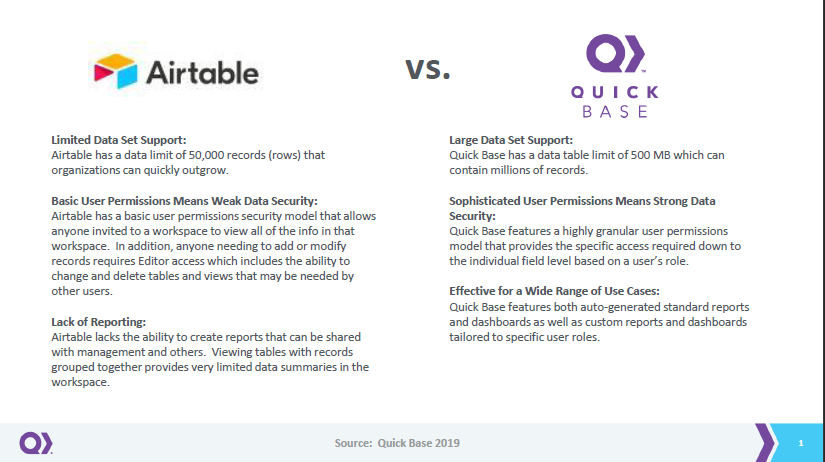I’m looking at learning more about Airtable and using it for my small business. This platform seems promising however a sales rep from another company (Quick Base) had pointed out the following limitations of Airtable.
Airtable Limitations (according to a Quick Base rep)
- Limited Data Set Support: Airtable has a data limit of 50,000 records (rows) that organizations can quickly outgrow.
- Basic User Permissions Means Weak Data Security: Airtable has a basic user permissions security model that allows anyone invited to a workspace to view all of the info in that workspace. In addition, anyone needing to add or modify records requires Editor access which includes the ability to change and delete tables and views that may be needed by other users
- Lack of Reporting: Airtable lacks the ability to create reports that can be shared with management and others. Viewing tables with records grouped together provides very limited data summaries in the workspace.
Are these statement accurate about this platforms limitations, or is this dude just blowing smoke? I do notice these statements reflect 2019 features so maybe they are updated. If anyone can confirm, thank you!


